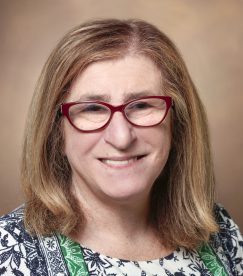The latest chemotherapy drug shortage hit the healthcare community – and the headlines – in October. Vincristine, an inexpensive generic that costs less than $15 per dose, is widely used to treat many pediatric and adult cancers. News of a nationwide shortage in the U.S. added fuel to mounting public concerns that supply chains for many vital drugs are dangerously erratic.
In recent years there have been recurrent shortages of IV-delivered cancer drugs. As is true across the drug spectrum, manufacturing outsourcing and a strong reliance on foreign sources of raw materials have heightened supply uncertainties. The latest vincristine shortage followed a business decision by Israeli company Teva Pharmaceuticals to stop its manufacture in July, leaving Pfizer as the sole manufacturer.
“We have come to expect these shortages in chemo drugs.”
At the hospital, the problem of drug shortages is necessitating careful planning regimens, says Debra Friedman, M.D., a pediatric oncologist at Monroe Carell Jr. Children’s Hospital. “We have come to expect these shortages in chemo drugs, so we have a clear policy for how we stock up without over-purchasing supplies other centers may need.” Friedman is a member of the hospital’s chemotherapy shortage committee tasked with helping ensure an adequate drug supply.
Hospitals Plan for Crisis
Inventory planning has become critical, Friedman said. “We look at each patient’s treatment plan a few months out and literally count the number of doses they will need. Then, we factor in our expected number of new patients, and that tells us how much to stock – barring an onslaught of diagnoses requiring vincristine or a much longer shortage than anticipated.”
Since vincristine is used to treat adult cancers as well, working with adult oncology was crucial in the latest shortage. “In some places, the two divisions are so separate,” Friedman said. “Since there is a single pharmacy that orders for both, if the two aren’t talking, the pharmacy is filling for whoever is asking without knowing who else is counting on the supply on hand.”
Small, regional hospitals face a greater risk of a drug shortage, Friedman explains. However, if another hospital runs short, she says the Children’s Oncology Group, the FDA, and the “tight network of providers in children’s cancer” have resources to help fill prescriptions. “We have even helped large hospitals in Tennessee when their stock runs low,” Friedman said.
Until A Long-term Solution Arrives
Many Americans are baffled over shortages of inexpensive, life-saving drugs in a country at the forefront of drug development. Public outcry has called for greater government involvement in manufacturing life-saving drugs, or the enactment of “Made in America” policies to keep the supply chain and quality easier to control. Uproar over the vincristine shortage, in part, helped push TEVA to resume manufacturing the drug in November.
Vanderbilt is closely watching events nationally, but it has also focused inward to ensure it has sufficient response strategies to “not be caught off guard,” says Michael O’Neal, Pharm.D., director of pharmacy purchasing and inventory management at Vanderbilt University Medical Center. O’Neal says preparing for the next shortage that is “certain to come” is complex and ongoing work.
“It’s an effort across the hospital system.”
“It’s an effort across the hospital system that includes leveraging our relationships with the industry, assessing the supply landscape constantly, building strategic reserves, and working collaboratively to communicate through our clinical, operation and administrative teams,” O’Neal said. “This is while we continue to make sure we are good members of the medical community in our inventory strategies.”
Friedman echoes that sentiment from within the pediatric oncology community: “The most important thing is getting the message out to families that if their oncologist is having a shortage, there are ways to get medicine to their patient. In the pediatric oncology world, we all work together.”






